
Nyamirambo: The Vibrant Heart of Kigali
Nyamirambo is a bustling and colorful neighborhood in Kigali, Rwanda’s capital city. Known for its vibrant atmosphere, Nyamirambo offers an authentic taste of Rwandan urban life. The streets are lined with lively markets, local shops, and a mix of traditional and modern eateries that serve a variety of Rwandan and international cuisines. The neighborhood is also home to a diverse community, which is reflected in its rich cultural tapestry. One of the highlights of Nyamirambo is the Nyamirambo Women's Center. This community-based organization offers guided walking tours that provide an insider's view of the neighborhood. The tours include visits to local homes, markets, and mosques, giving tourists a unique opportunity to learn about daily life in Nyamirambo. In addition to its cultural attractions, Nyamirambo is known for its nightlife. The area boasts a number of bars and clubs where you can experience the local music scene. Whether you’re interested in traditional Rwandan music or contemporary African beats, Nyamirambo has something to offer everyone. For those interested in history, the Kigali Genocide Memorial is a short drive away. This poignant site pays tribute to the victims of the 1994 genocide and serves as a powerful reminder of Rwanda's turbulent past and remarkable recovery.
Local tips in Nyamirambo
- Visit the Nyamirambo Women's Center for a guided walking tour to truly experience the local culture.
- Try local Rwandan dishes at one of the neighborhood's many eateries.
- Explore the area on foot to fully appreciate its vibrant street life and markets.
- Take a short drive to the Kigali Genocide Memorial for a historical perspective.
- Experience the nightlife by visiting local bars and clubs to enjoy Rwandan music.
Nyamirambo: The Vibrant Heart of Kigali
Nyamirambo is a bustling and colorful neighborhood in Kigali, Rwanda’s capital city. Known for its vibrant atmosphere, Nyamirambo offers an authentic taste of Rwandan urban life. The streets are lined with lively markets, local shops, and a mix of traditional and modern eateries that serve a variety of Rwandan and international cuisines. The neighborhood is also home to a diverse community, which is reflected in its rich cultural tapestry. One of the highlights of Nyamirambo is the Nyamirambo Women's Center. This community-based organization offers guided walking tours that provide an insider's view of the neighborhood. The tours include visits to local homes, markets, and mosques, giving tourists a unique opportunity to learn about daily life in Nyamirambo. In addition to its cultural attractions, Nyamirambo is known for its nightlife. The area boasts a number of bars and clubs where you can experience the local music scene. Whether you’re interested in traditional Rwandan music or contemporary African beats, Nyamirambo has something to offer everyone. For those interested in history, the Kigali Genocide Memorial is a short drive away. This poignant site pays tribute to the victims of the 1994 genocide and serves as a powerful reminder of Rwanda's turbulent past and remarkable recovery.
Iconic landmarks you can’t miss
KIGALI PELÉ STADIUM
Discover Kigali Pelé Stadium: A modern sports venue in Rwanda's capital, where culture and excitement come together for unforgettable experiences.
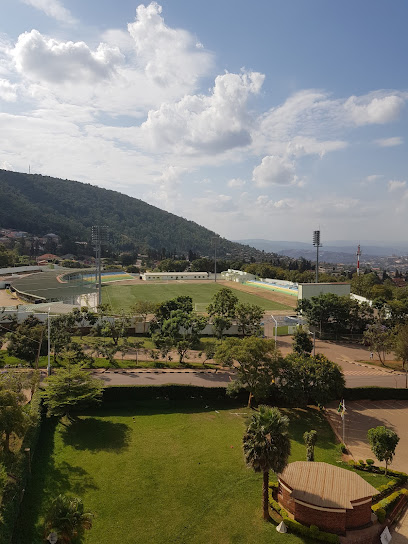
Kandt House Museum
Explore the Kandt House Museum in Kigali, a cultural gem that unveils Rwanda's fascinating history and heritage through engaging exhibitions and artifacts.
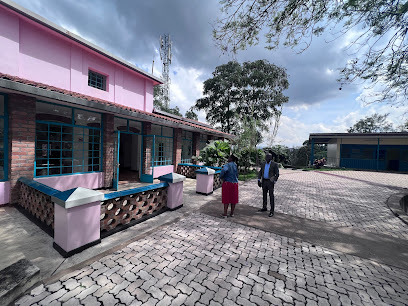
Belgian Peacekeepers Memorial
Explore the Belgian Peacekeepers Memorial in Kigali, a poignant tribute to courage and resilience in the face of adversity.
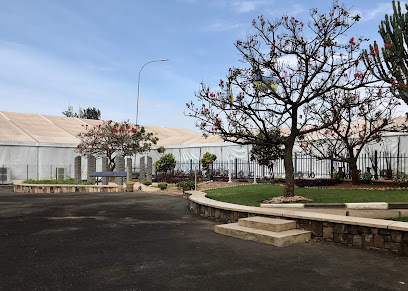
Kigali Prime Garden
Discover Kigali Prime Garden, a lush green haven in Kigali, perfect for relaxation, picnics, and enjoying nature's beauty.
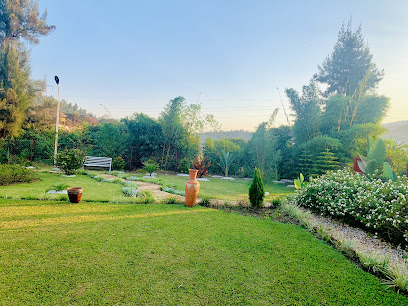
Nyamirambo Market
Explore Kigali's Nyamirambo Market, a vibrant shopping destination filled with local crafts, fresh produce, and a taste of authentic Rwandan culture.
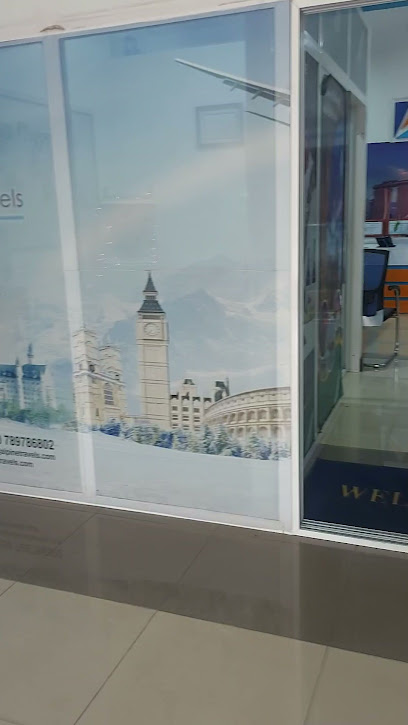
Imbuga City Walk
Explore Imbuga City Walk in Kigali: A serene urban park showcasing local culture, art, and stunning landscapes for an unforgettable Rwandan experience.
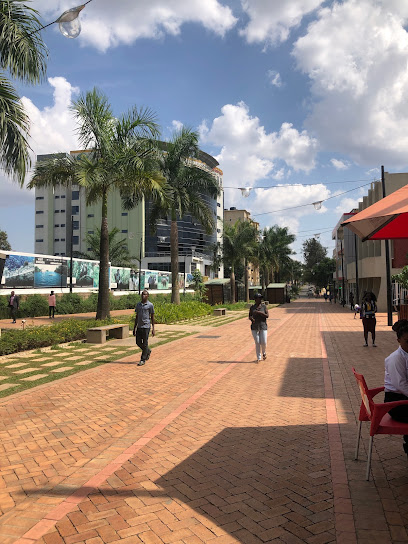
Mur de Kigali
Explore the Mur de Kigali, a vital memorial that embodies resilience and remembrance in the heart of Rwanda's capital city.
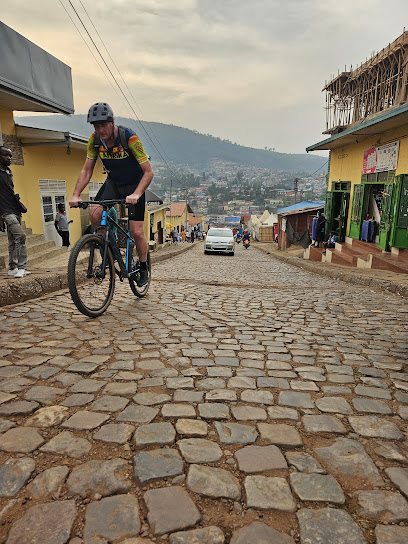
Rwarutabura nyamirambo
Discover the vibrant Rwarutabura Nyamirambo playground in Kigali, a perfect blend of fun and cultural immersion for families and tourists.
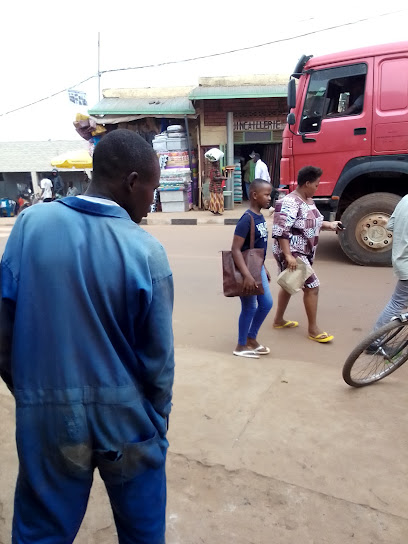
Gorilla Statue
Explore the Gorilla Statue in Kigali, a symbol of Rwanda's wildlife conservation and cultural heritage, set in the vibrant Kiyovu neighborhood.
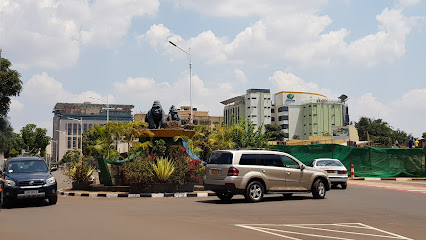
Nyamirambo Walking Tour
Discover the cultural richness and vibrant life of Kigali through the Nyamirambo Walking Tour, an authentic journey led by local women.
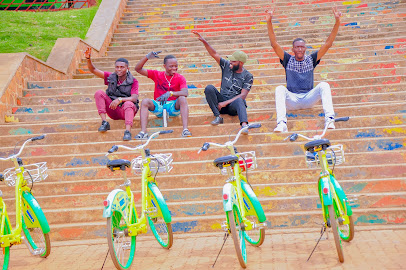
Isoko ry'i Nyamirambo
Experience the heart of Kigali at Isoko ry'i Nyamirambo, a bustling market where local culture, artisan crafts, and delicious Rwandan cuisine come together.
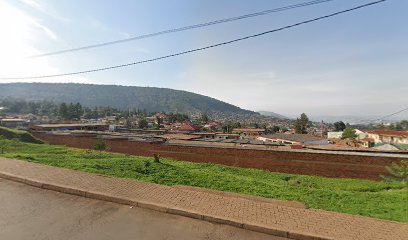
Nyamirambo Sector Office
Explore the Nyamirambo Sector Office, a vibrant hub of local governance in Kigali, surrounded by the rich culture and community of Rwanda's capital.
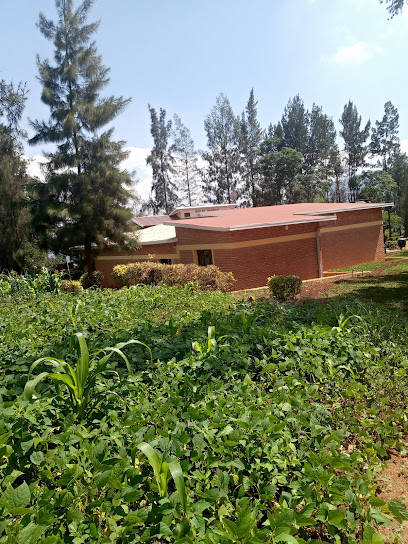
Irimbi nyamirambo
Explore the tranquil Irimbi Nyamirambo cemetery in Kigali, a serene site reflecting Rwanda's rich history and cultural resilience.
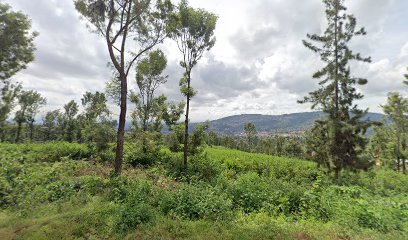
Unmissable attractions to see
Inema Arts Centre
Discover the vibrant world of contemporary Rwandan art at Inema Arts Centre, a must-visit cultural attraction in Kigali.
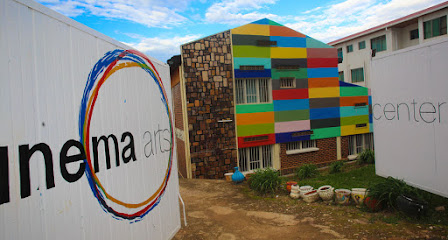
Meraneza
Discover the breathtaking hiking trails and stunning landscapes at Meraneza in Kigali, a nature lover's dream escape in Rwanda.
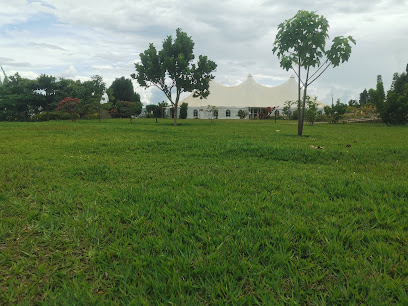
Tona House
Explore Tona House in Kigali, a cultural gem showcasing Rwanda's heritage, art, and local life.
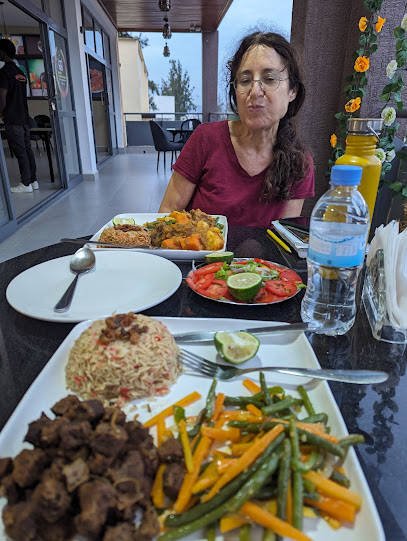
Kigali
Explore Kigali, the vibrant capital of Rwanda, where rich history meets modern culture amid stunning landscapes and welcoming locals.
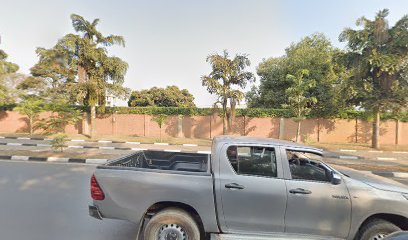
Ikiraro Mwendo (M III)
Explore Ikiraro Mwendo (M III) in Kigali for a unique experience of Rwandan culture, stunning landscapes, and vibrant community life.
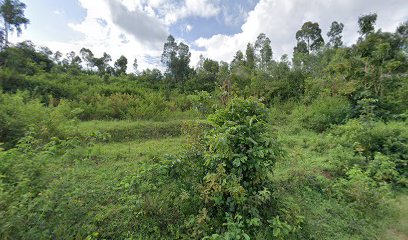
Essential places to dine
Green Corner
Experience authentic Rwandan grilled cuisine at Green Corner in Kigali - where flavor meets affordability.
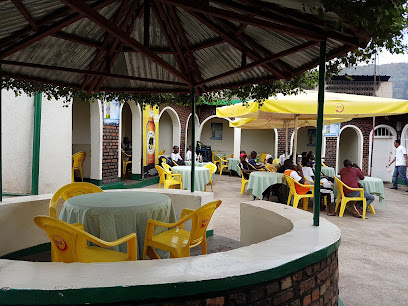
Makola
Discover authentic Rwandan flavors at Makola in Kigali - where every bite tells a story.
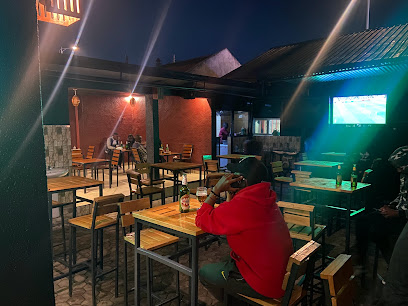
Isame Restaurant And Coffee Shop
Discover authentic African flavors at Isame Restaurant and Coffee Shop in Kigali – where tradition meets taste.
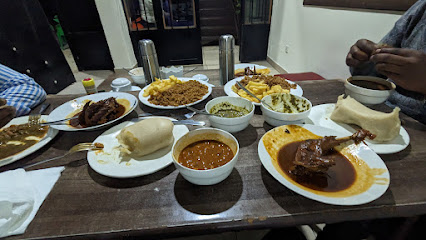
Kalabash Restaurant Ltd
Discover the flavors of Rwanda at Kalabash Restaurant Ltd – where every meal is a celebration of taste and tradition.
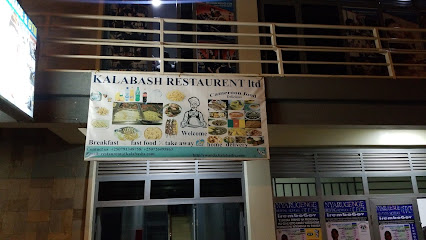
Plan B Bar-Resto
Discover the culinary treasures of Kigali at Plan B Bar-Resto, where local flavors meet international cuisine in a vibrant setting.
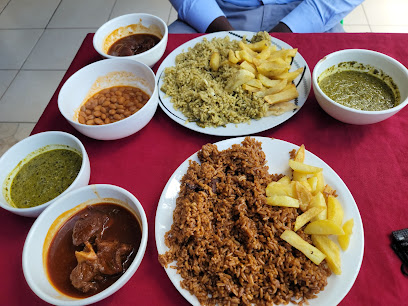
Uwera House
Discover authentic Rwandan flavors at Uwera House - a culinary gem in Kigali offering delightful dishes in a cozy setting.
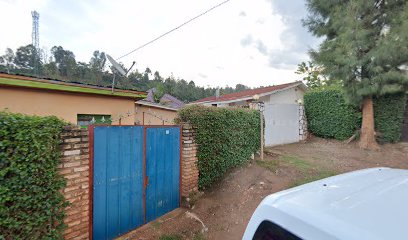
Tembo Fast Food
Experience authentic Rwandan cuisine at Tembo Fast Food in Kigali - where local flavors meet warm hospitality.

Umoja, East African Cuisine
Experience authentic East African flavors at Umoja in Kigali - where every dish tells a story.
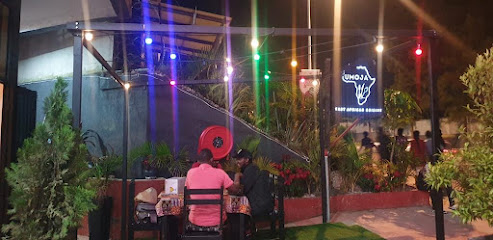
Italian Cafe
Experience authentic Italian flavors in Kigali’s vibrant Nyamirambo neighborhood at the charming Italian Cafe.
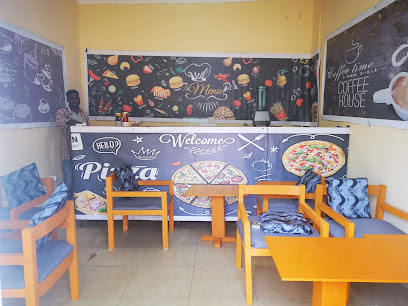
Gift Restaurant
Discover authentic Rwandan flavors at Gift Restaurant in Kigali - where culinary excellence meets warm hospitality.

Markets, malls and hidden boutiques
Nyamirambo Market
Explore Nyamirambo Market in Kigali: A colorful hub of local culture, crafts, and cuisine in the heart of Rwanda.
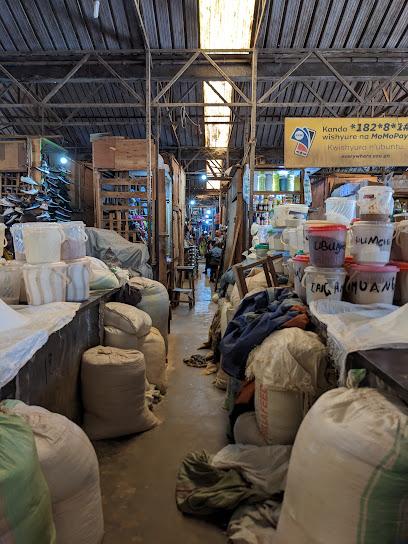
Nadji Clothing Boutique
Explore Nadji Clothing Boutique in Kigali for a unique blend of local and international fashion, embodying the vibrant spirit of Rwandan culture.

Now & Wow Boutique
Explore Now & Wow Boutique in Kigali for unique fashion finds and authentic Rwandan souvenirs that embody the local culture and artistry.

Chez Mandela Boutique
Explore the vibrant culture of Rwanda through unique handcrafted treasures at Chez Mandela Boutique in Kigali.

MM family
Explore MM Family Boutique in Kigali, where local craftsmanship meets modern fashion in a charming shopping experience.
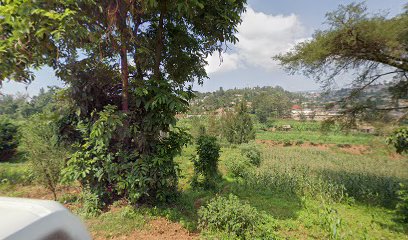
LLit Boutique
Explore LLit Boutique in Kigali for contemporary fashion that reflects Rwanda's vibrant culture and artistic heritage.
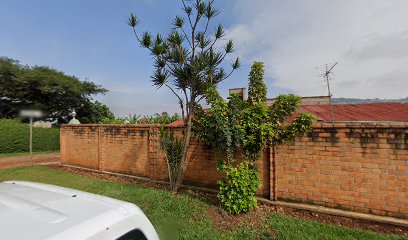
Addy’s art shop - Kigali
Explore the vibrant world of Rwandan art and culture at Addy’s Art Shop in Kigali, your destination for unique handmade crafts and souvenirs.
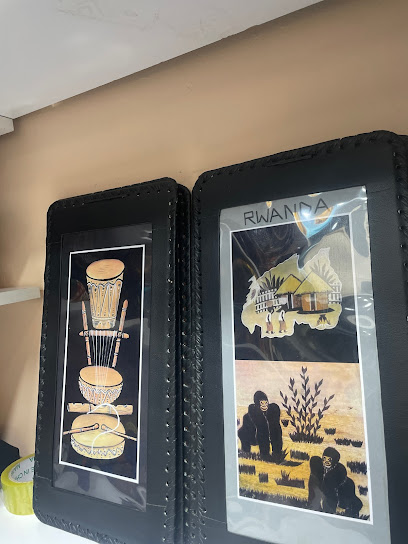
Fashion style
Discover the dynamic fashion scene of Kigali, where traditional elegance meets contemporary style in a vibrant shopping paradise.

Shalom boutique
Explore the vibrant artistry and unique fashion finds at Shalom Boutique, Kigali's premier destination for local craftsmanship.
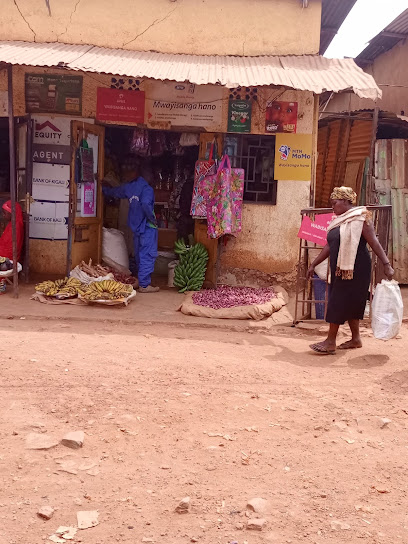
Boutique Alexis Kigali
Explore Boutique Alexis Kigali, a dynamic shopping mall offering a unique blend of local crafts, fashion, and culinary delights in Kigali.
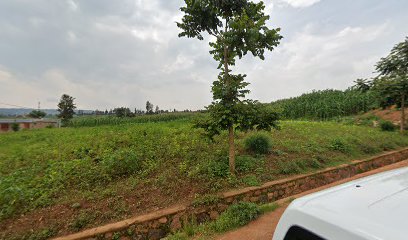
Essential bars & hidden hideouts
Makola
Experience the rich flavors of Rwanda at Makola Grill in Kigali, where authentic cuisine meets a warm and inviting atmosphere.
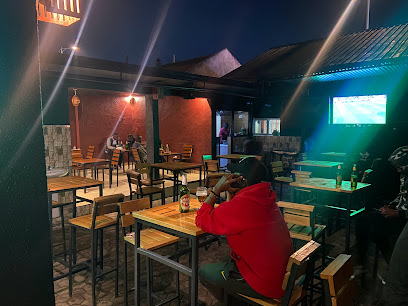
Bar Mubiti
Experience the vibrant flavors of Rwanda at Bar Mubiti, Kigali's premier grill destination for locals and tourists alike.
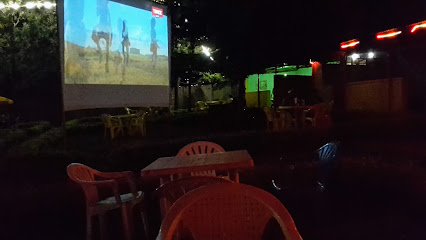
Bar Stella
Experience Kigali's vibrant nightlife at Bar Stella, where local culture meets a lively atmosphere and a delightful drink selection.
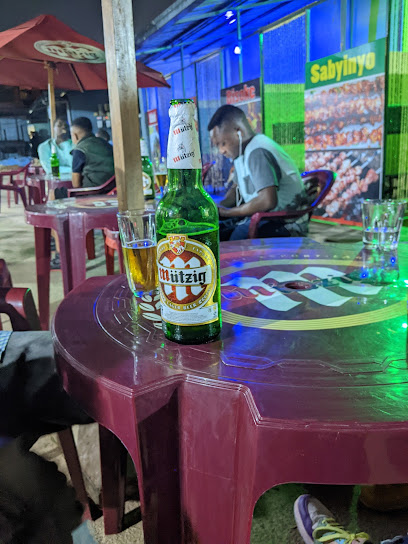
Mera Neza Bar & Restaurant
Discover the flavors of Kigali at Mera Neza Bar & Restaurant, a friendly spot for drinks, local cuisine, and vibrant community vibes.
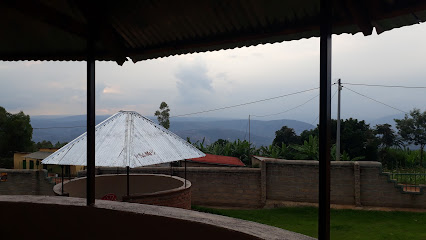
Chez Papa Mignone ( Alpha resto & bar)
Discover Kigali's vibrant bar scene at Chez Papa Mignone, where local drinks and warm ambiance unite for an unforgettable experience.
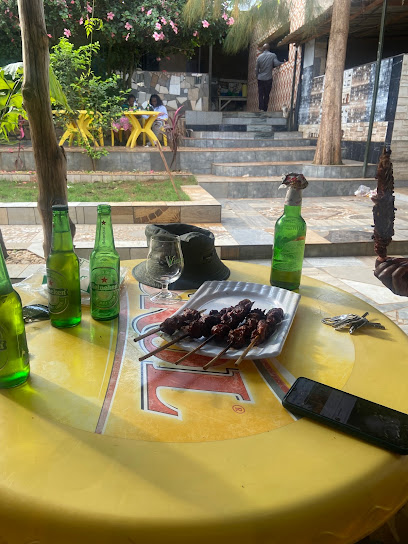
Piano Bar
Discover Kigali's lively Piano Bar, a premier destination for live music, exquisite drinks, and an electrifying atmosphere that captures the essence of Rwandan nightlife.
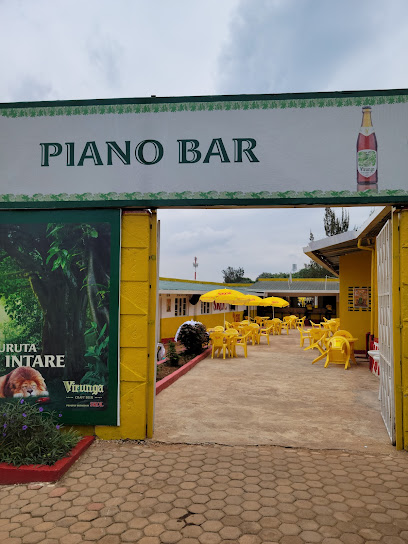
CUBANA MAPUB
Discover the vibrant nightlife of Kigali at Cubana Mapub, a lively bar offering refreshing drinks and a welcoming atmosphere.
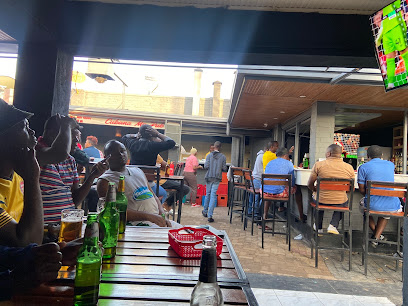
Makumba bar
Discover the vibrant flavors and lively atmosphere of Makumba Bar in Kigali, a perfect spot for food lovers and social butterflies alike.
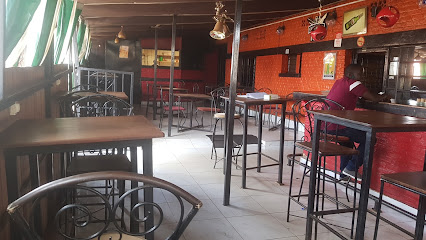
Mimoza Bar
Discover the flavors of Rwanda at Mimoza Bar, a top grill destination in Kigali known for its warm ambiance and delicious culinary offerings.
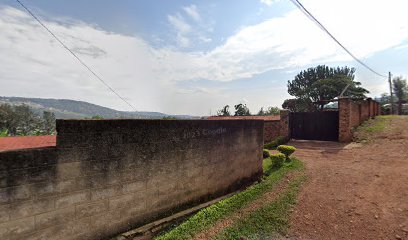
Unique-Resto Bar
Experience the vibrant flavors and lively atmosphere at Kigali's Unique-Resto Bar, where culinary delights meet local culture.

Local Phrases
-
- HelloMuraho
[moo-rah-ho] - GoodbyeMurabeho
[moo-rah-beh-ho] - YesYego
[yeah-go] - NoOya
[oh-ya] - Please/You're welcomeNagira amahoro
[nah-gee-rah ah-mah-ho-ro] - Thank youMurakoze
[moo-rah-koh-zay] - Excuse me/SorryNshuti
[n-shoo-tee] - How are you?Amakuru?
[ah-mah-koo-roo] - Fine. And you?Muraho. Nawe?
[moo-rah-ho. nah-way] - Do you speak English?Mubafasha gusoma icyongereza?
[moo-bah-fah-sha goo-soh-mah ee-choon-ghe-reh-zah] - I don't understandNtawumva
[n-tah-woo-mvah]
- HelloMuraho
-
- I'd like to see the menu, pleaseNifuza kumenya ijambo ry'ibimenyetso, cyane cyane
[nee-foo-zah koo-meh-nyah ee-jahm-boh ree-ee-bee-meh-nyet-soh, chyah-neh chyah-neh] - I don't eat meatSimbiyubaka ibiryo by'inyama
[see-mbee-yoo-bah-kah ee-bee-ryo bee-ee-nyah-mah] - Cheers!Amahoro!
[ah-mah-ho-ro] - I would like to pay, pleaseNifuza gukodesha, cyane cyane
[nee-foo-zah goo-koh-deh-shah, chyah-neh chyah-neh]
- I'd like to see the menu, pleaseNifuza kumenya ijambo ry'ibimenyetso, cyane cyane
-
- Help!Utuze!
[oo-too-zay] - Go away!Jya iyi bihe!
[zh-yah ee-yee bee-heh] - Call the Police!Simbura Polisi!
[see-mboo-rah poh-lee-see] - Call a doctor!Simbura umurongo!
[see-mboo-rah oo-moo-ron-goh] - I'm lostNdi mubabazi
[ndee moo-bah-bah-zee] - I'm illNdi mu buryo
[ndee moo boo-ree-yoh]
- Help!Utuze!
-
- I'd like to buy...Nifuza gutwara...
[nee-foo-zah goo-twa-rah] - I'm just lookingNzikoresha kandi
[n-zee-koh-reh-shah kahn-dee] - How much is it?Ni iki gihe?
[nee ee-kee gee-heh] - That's too expensiveNi byiza cyane
[nee bee-yee-zah chyah-neh] - Can you lower the price?Mwaba mutegura isanamu?
[mwah-bah moo-teh-goo-rah ee-sah-nah-moo]
- I'd like to buy...Nifuza gutwara...
-
- What time is it?Ni iki gihe?
[nee ee-kee gee-heh] - It's one o'clockNi saa y'umwe
[nee sah yoo-mweh] - Half past (10)Imwe na mirongo itanu
[eem-weh nah mee-ron-goh ee-tah-noo] - MorningMugitondo
[moo-gee-ton-doh] - AfternoonMugitondo
[moo-gee-ton-doh] - EveningMugitondo
[moo-gee-ton-doh] - YesterdayEjo
[eh-joh] - TodayEjo
[eh-joh] - TomorrowEjo
[eh-joh] - 1Rimwe
[ree-mweh] - 2Kabiri
[kah-bee-ree] - 3Gatatu
[gah-tah-too] - 4Kane
[kah-neh] - 5Gatanu
[gah-tah-noo] - 6Gatandatu
[gah-tahn-dah-too] - 7Kumwe
[koo-mweh] - 8Nyanya
[nyahn-yah] - 9Kenda
[ken-dah] - 10Mwenda
[mwehn-dah]
- What time is it?Ni iki gihe?
-
- Where's a/the...?Aho hari...?
[ah-hoh hah-ree] - What's the address?Iby'ivugurura ni iki?
[ee-bee-ee-voo-goo-roo-rah nee ee-kee] - Can you show me (on the map)?Mwaba mufite iyo nzamucyurira?
[mwah-bah moo-fee-teh ee-yoh n-zah-moo-choo-ree-rah] - When's the next (bus)?Iki gihe umusaruro ugenda?
[ee-kee gee-heh oo-moo-sah-roo-roo oo-gehn-dah] - A ticket (to ....)Imvumo (kuri ....)
[eem-voo-moh koo-ree]
- Where's a/the...?Aho hari...?
History of Nyamirambo
-
Nyamirambo, one of Kigali's oldest neighborhoods, has roots that trace back to the early 20th century. Initially inhabited by a mix of ethnic groups, the area became a vibrant hub for trade and culture. Its strategic location near the city center facilitated connections between various communities, fostering a spirit of unity and diversity that remains evident today.
-
During the Belgian colonial period, Nyamirambo experienced significant urban development. The Belgian administration implemented infrastructure projects, including roads and public buildings, which transformed the neighborhood. This era also saw a mix of traditional Rwandan culture with European influences, particularly in architecture and education, shaping the identity of Nyamirambo.
-
The 1994 Genocide against the Tutsi had a profound impact on Nyamirambo. As one of the neighborhoods deeply affected by the violence, it became a site of both tragedy and resilience. After the genocide, Nyamirambo played a crucial role in the reconciliation process, as community members worked together to rebuild their lives and foster unity among the diverse populations.
-
In recent years, Nyamirambo has emerged as a vibrant cultural hub within Kigali. The neighborhood is known for its lively markets, local eateries, and artistic expressions, including murals and community art projects. This renaissance reflects a broader trend in Kigali, where urban neighborhoods are embracing their cultural heritage while adapting to modern influences.
-
Nyamirambo has been the focus of numerous community-driven initiatives aimed at improving living conditions and promoting sustainable development. Local organizations have launched projects in education, health, and economic empowerment, contributing to the neighborhood's growth while preserving its rich cultural fabric. The residents' commitment to community development showcases the resilience and determination of Nyamirambo's inhabitants.
Nyamirambo Essentials
-
Nyamirambo is easily accessible from other neighbourhoods in Kigali. From the city center, you can take a motorcycle taxi (moto) or a regular taxi, which will cost you around 1,500 to 3,000 RWF. Alternatively, you can use public transport by boarding a bus or a minibus that heads towards Nyamirambo; routes 1 and 3 are commonly used. The journey typically takes about 15 to 30 minutes, depending on traffic.
-
Nyamirambo is a vibrant and walkable neighbourhood. Walking is one of the best ways to explore, as many attractions are close to one another. For longer distances, motorcycle taxis (motos) are widely available and affordable. Local minibuses operate within Nyamirambo, connecting it to other parts of Kigali. Renting a bicycle can also be an enjoyable option for exploring the area at your own pace.
-
Nyamirambo is generally safe for tourists, but it's important to be cautious, especially after dark. Avoid walking alone in poorly lit areas and be mindful of your belongings in crowded places. Some areas, particularly near the bus stations, can be less safe and may attract petty crime. It's advisable to stay vigilant and avoid displaying valuables openly.
-
In case of an emergency, dial 112 for police assistance or 911 for medical emergencies. There are hospitals and clinics in and around Nyamirambo, including the Nyamirambo Health Centre. It is strongly advised to have travel insurance that covers medical emergencies. For minor health issues, local pharmacies are available for over-the-counter medications.
-
Fashion: Do dress modestly and respectfully, especially in local markets and religious sites. Don’t wear revealing clothing. Religion: Do respect local customs; observing prayers or rituals quietly is appreciated. Public Transport: Do give up your seat to the elderly or pregnant women. Don't eat or drink on public transport. Greetings: Do greet people with a warm handshake and a smile. Don't forget to ask about their day as a sign of friendliness. Eating & Drinking: Do try local dishes like 'isombe' and 'ugali'. Don’t refuse food or drink offered to you as it can be seen as impolite.
-
To experience Nyamirambo like a local, visit the bustling Nyamirambo market, where you can find fresh produce and traditional crafts. Engage with local artisans and shopkeepers, who are often eager to share their stories. Don't miss the chance to try street food; the local food stalls offer delicious and affordable meals. Additionally, consider joining a community tour that highlights the culture and history of Nyamirambo, providing a deeper understanding of the neighbourhood.
Nearby Cities to Nyamirambo
-
Things To Do in Nyamata
-
Things To Do in Muhanga
-
Things To Do in Kirundo
-
Things To Do in Karongi
-
Things To Do in Ruhengeri
-
Things To Do in Butare
-
Things To Do in Kibuye
-
Things To Do in Nyagatare
-
Things To Do in Rubavu
-
Things To Do in Gisenyi
-
Things To Do in Muyinga
-
Things To Do in Ngozi
-
Things To Do in Kayanza
-
Things To Do in Cibitoke
-
Things To Do in Muramvya






